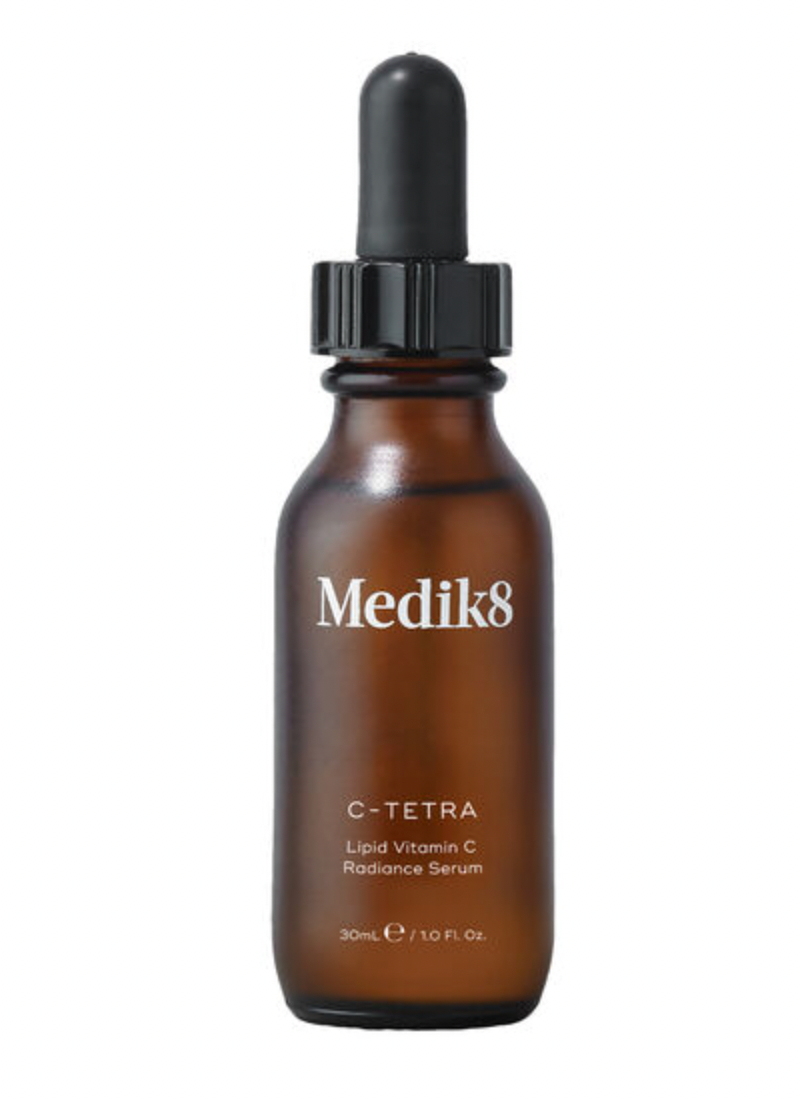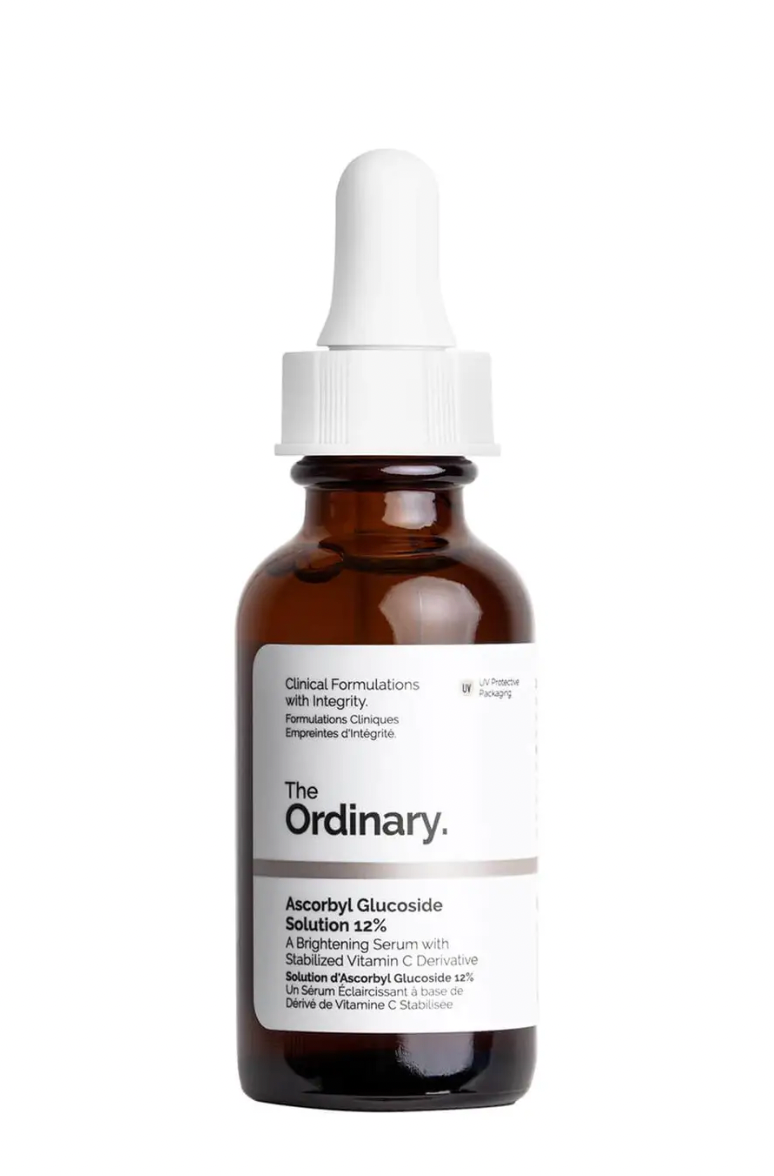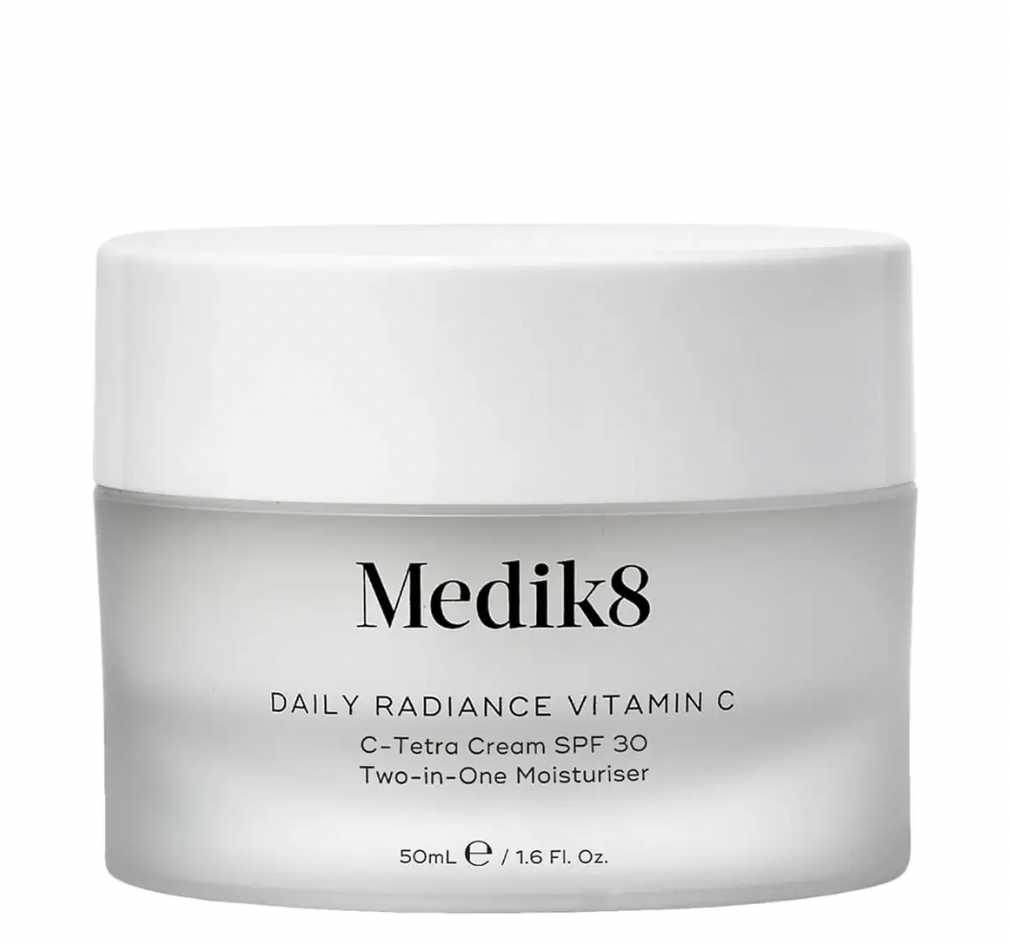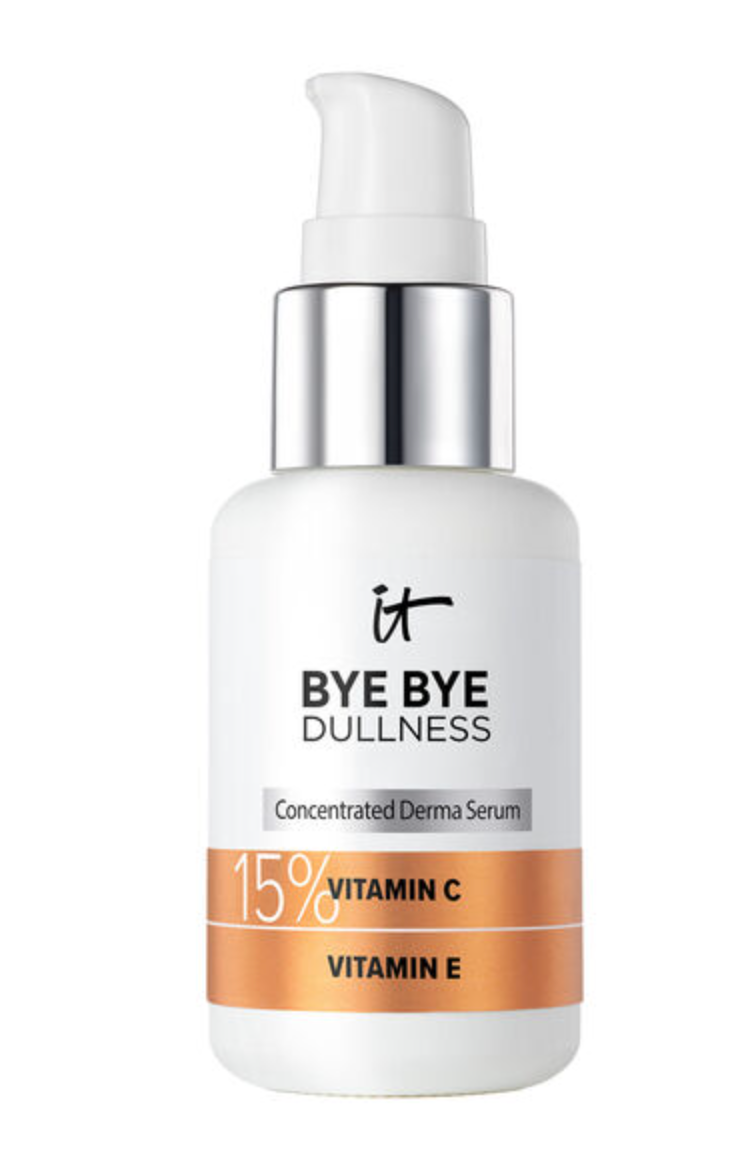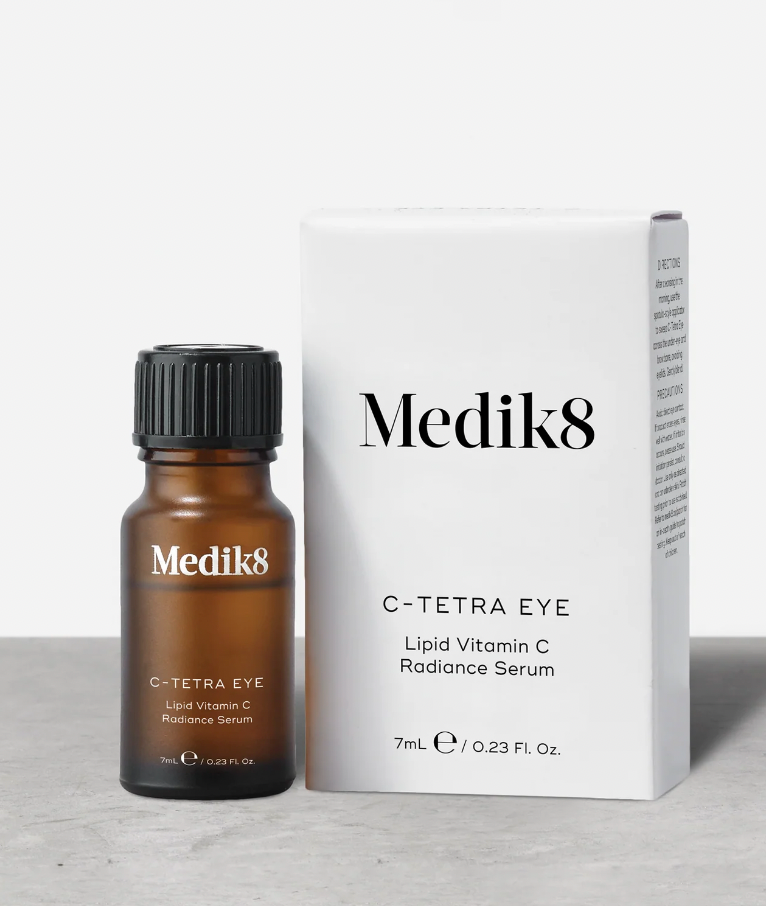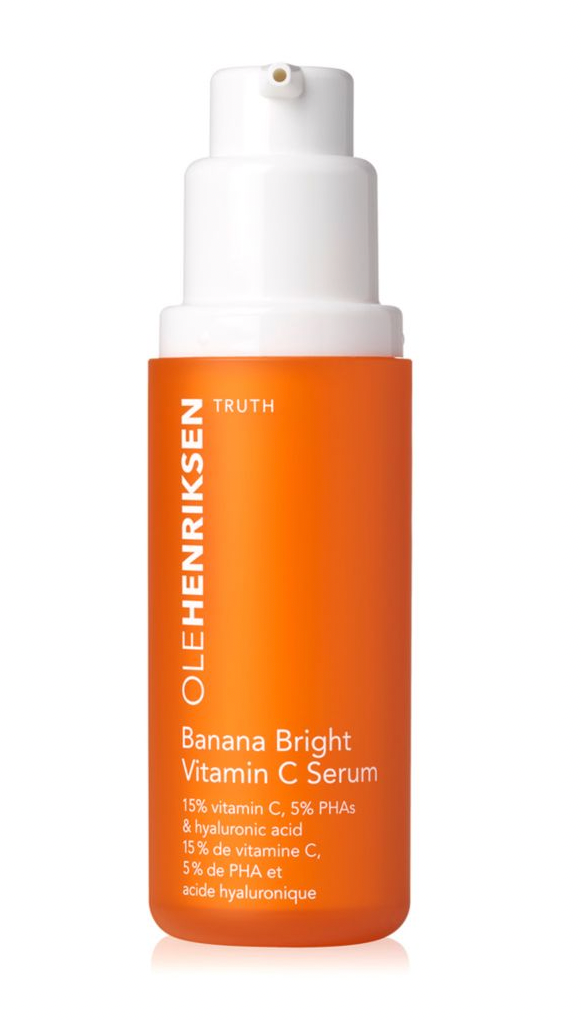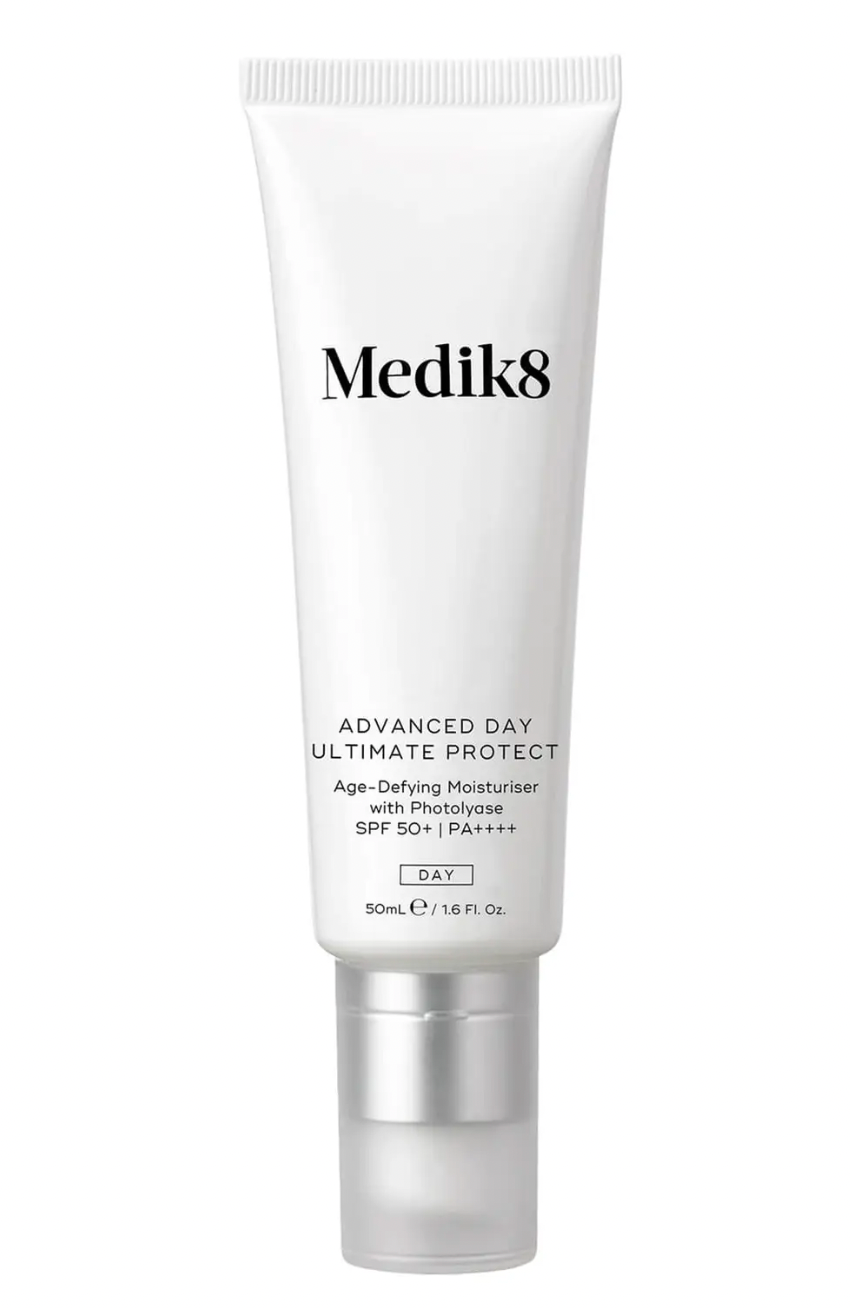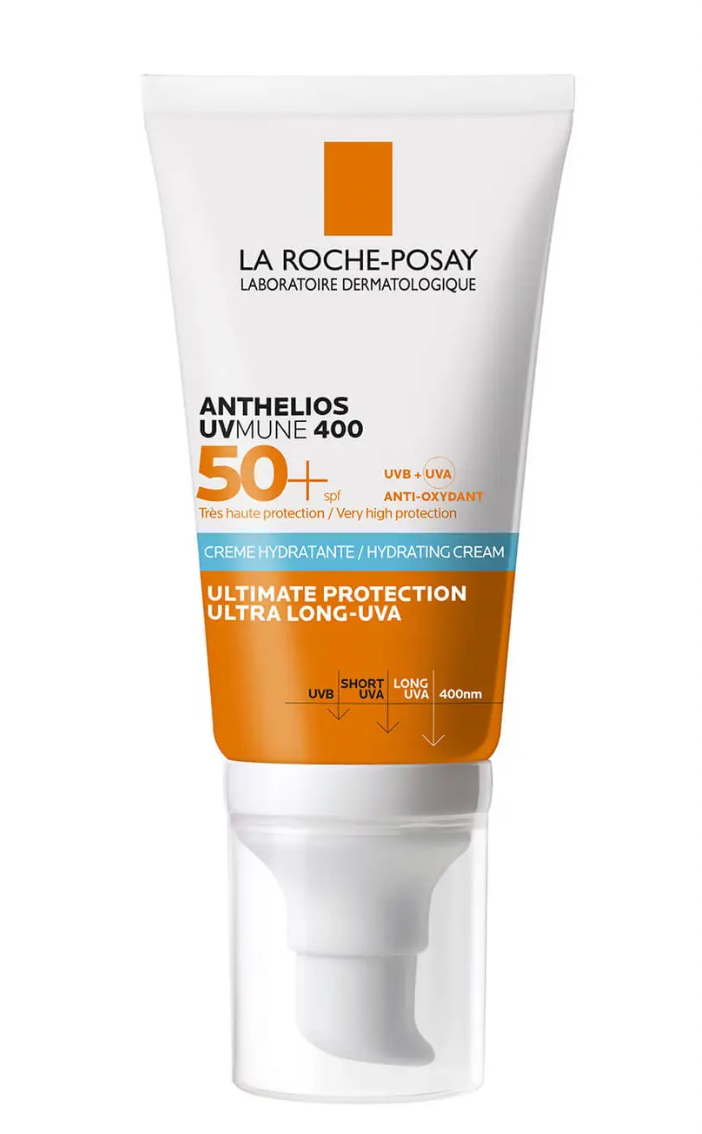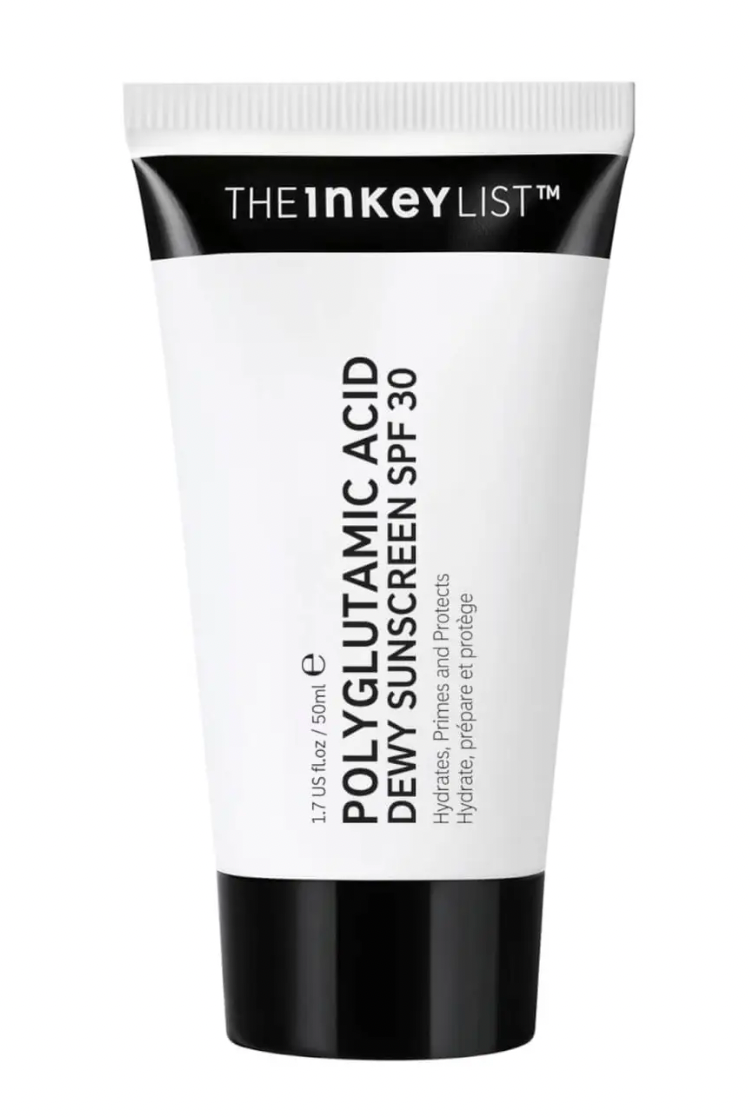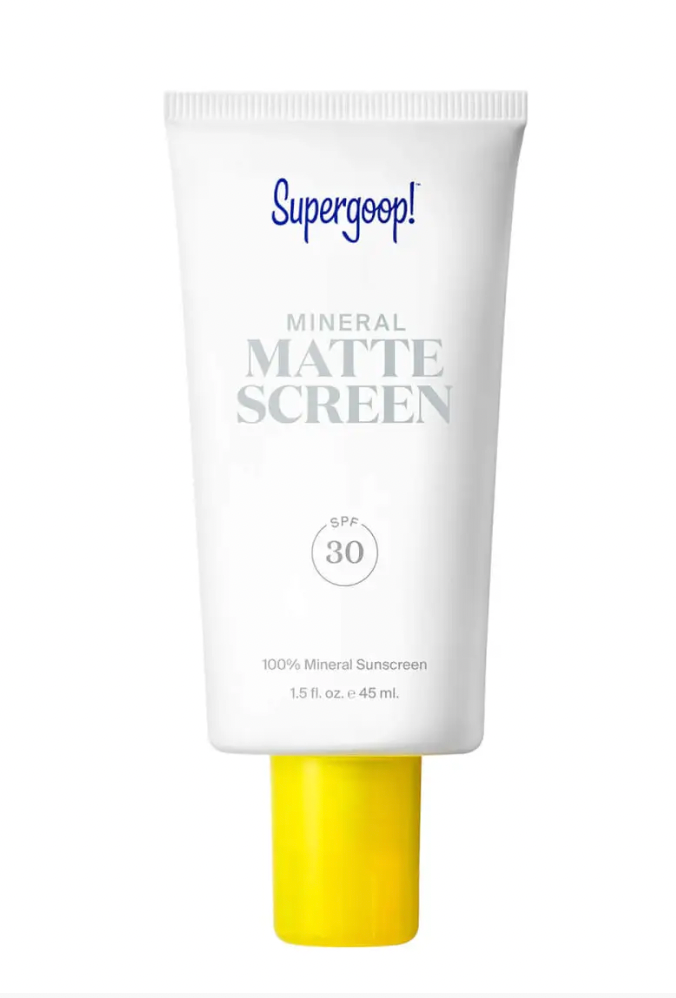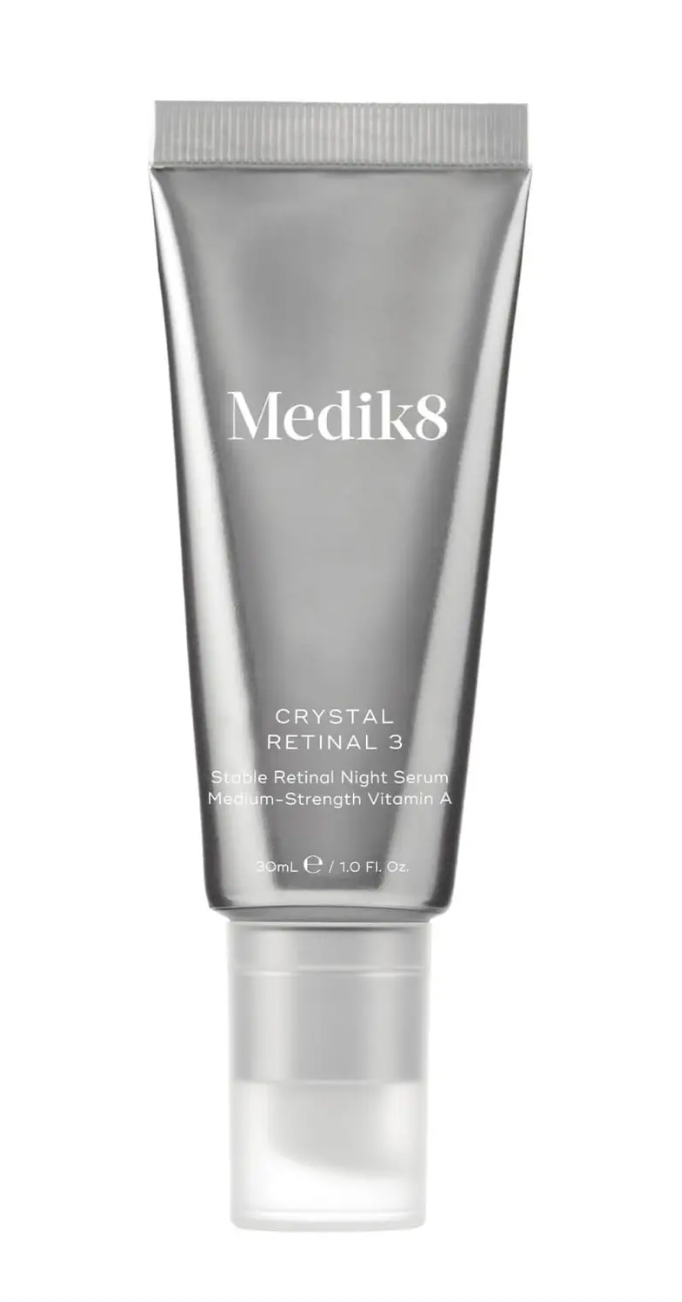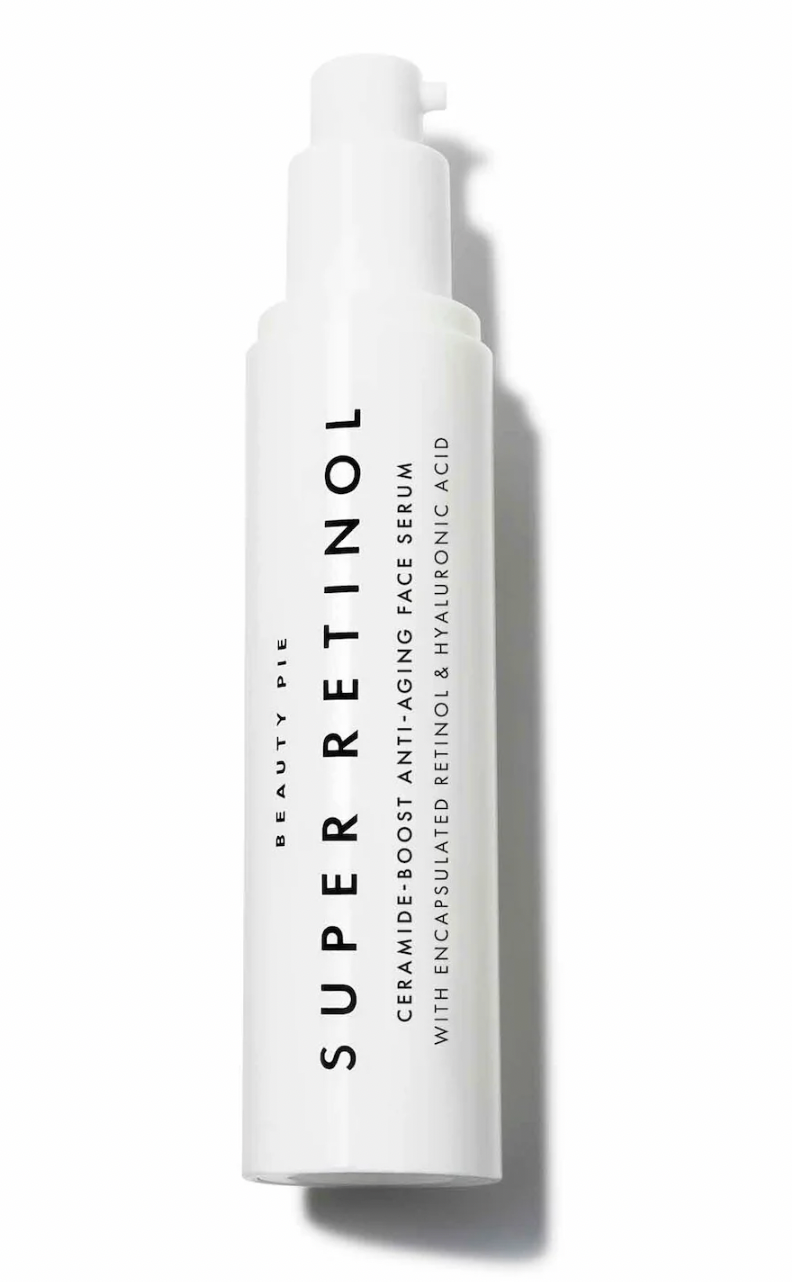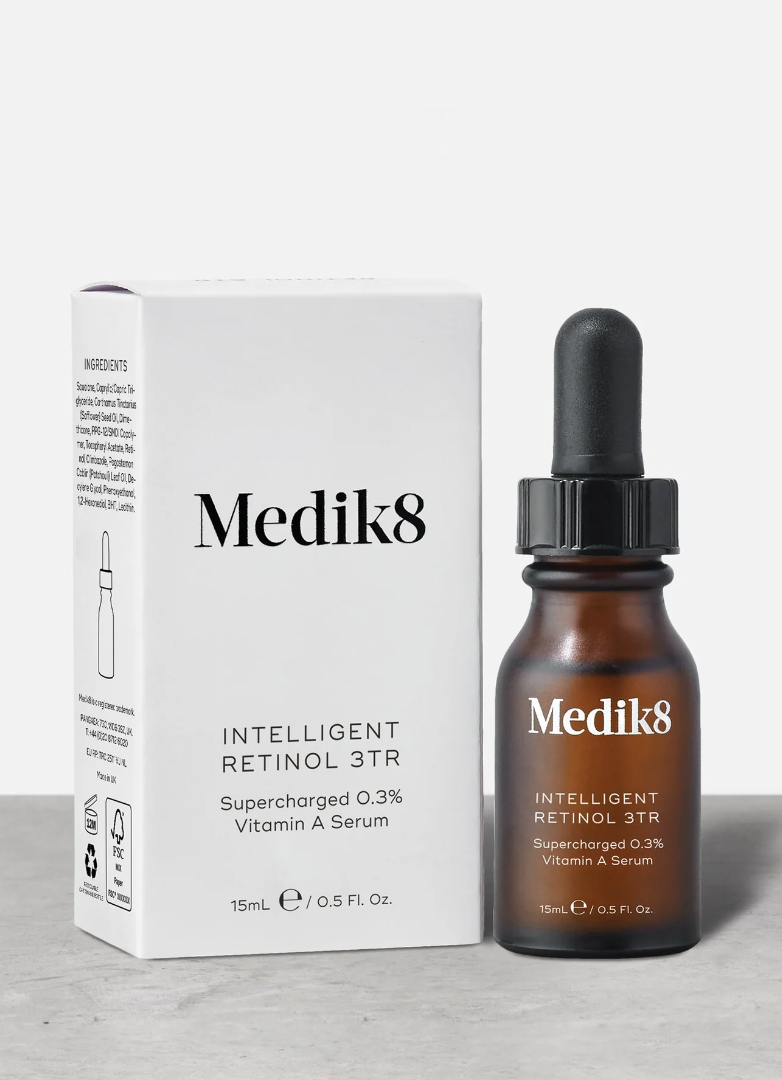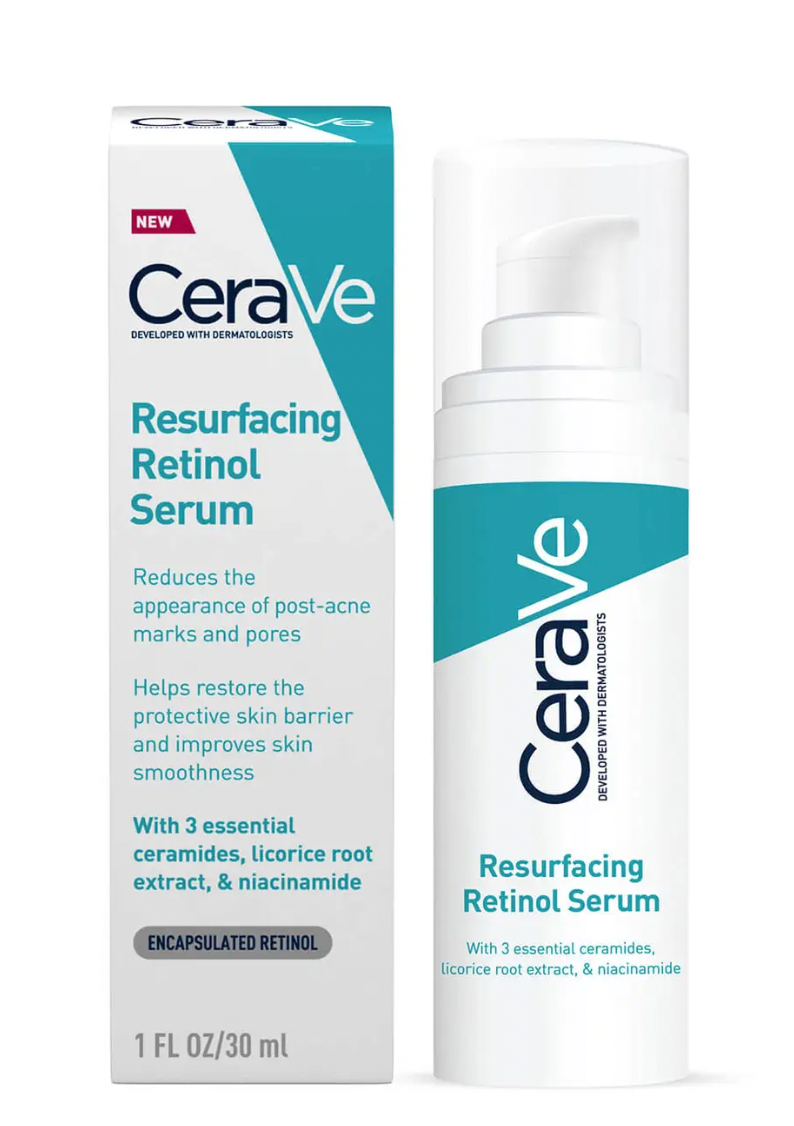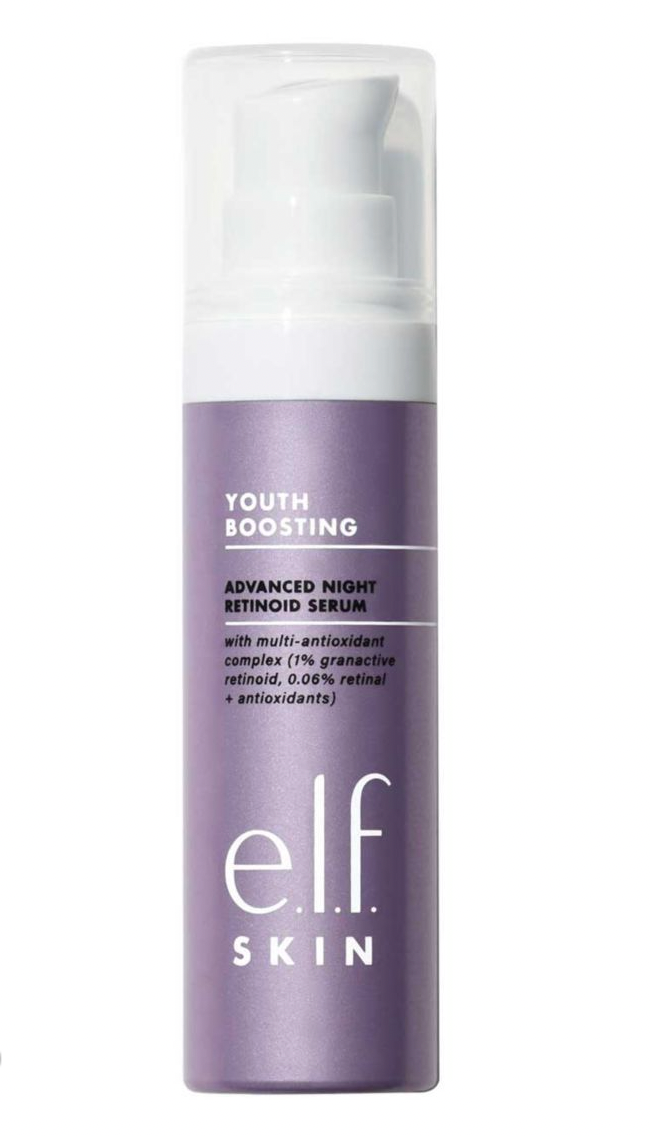Enter: CSA.
What Is A CSA Skincare Routine?
The CSA skincare philosophy is championed by skincare brand Medik8 and it's the perfect routine in my opinion. It revolves around using vitamin C, SPF and vitamin A (aka retinol), hence the CSA acronym. The CSA skincare routine isn't exactly new, though. Medik8 first highlighted the method in 2009 and since then has used it to simplify skincare for many. So far, it seems to be working.
AdvertisementADVERTISEMENT
"These three steps highlight the importance of cutting down on purchasing lots of skincare products and just approaching skincare more practically," shares dermatology doctor Sonia Khorana. Considering that 75% of women only use a third of their skincare, according to No7, this can only be a good thing for both our faces and our finances.
"I often talk about the benefits of 'skinimalism' and how you don’t need to have a 10-step skincare routine to see benefits," Dr Sonia adds, and I have to agree. My bathroom shelf may be bursting at the seams with lotions and potions (many of which are great) but my must-haves constitute only a very small proportion — and almost always fall under these three letters.
The Vitamin C
Vitamin C is my desert island beauty buy. "First and foremost, it is a powerful antioxidant," explains Daniel Isaacs, director of research at Medik8. Daniel explains that vitamin C is able to neutralise damaging free radicals derived from the sun and the environment, stopping them from attacking skin cells and causing signs of skin damage.
Since using a couple of drops of Medik8 C-Tetra Luxe, £59, each morning for around a year, my face has never looked brighter, smoother or more even in tone. This makes sense as Dr Sonia explains that vitamin C "helps with pigmentation, uneven skin tone and rebuilding collagen as well as protecting skin against environmental stressors and damage". It can even enhance the effects of sunscreen when used alongside it.
AdvertisementADVERTISEMENT
shop 6 products
The SPF
The importance of sunscreen has been drilled into all of us by now so of course it's the most important step in any skincare routine. "Sunscreen should be worn every single day to provide protection against exposure to UV rays," explains Daniel. "UVA rays in particular are present all day and year-round, and can penetrate clouds and glass." So yes, even when sitting at your desk by a window, you might want to consider wearing a high factor, broad spectrum SPF.
Personally, I still need to improve on my sunscreen application. If spending the day inside, either working from home or on the Tube to the office, it can seem like a bit of a pointless step. But the experts advise it isn’t. So finding one that’s actually enjoyable to use is key. Supergoop! Mattescreen, £34, is my go-to but I usually change it up each time one runs out. Also try The Inkey List Polyglutamic Acid Dewy Sunscreen SPF30, £14.99, and Medik8 Advanced Day Ultimate Protect SPF50 PA++++, £59.
shop 5 products
The Vitamin A
The third and final step in the CSA philosophy is vitamin A aka retinol, which Dr Sonia describes as the "skin superhero that can help with rebuilding collagen, fading pigmentation, textural irregularities and [improving] oil control".
AdvertisementADVERTISEMENT
The love for this ingredient seems never-ending but it doesn't come without some cons. Purging (in the form of breakouts), redness and dry skin are all reported retinol side effects. But Medik8 has an option for almost every skin type, even the most sensitive. There's a full guide on which one to go for here.
"The Medik8 motto is go low and go slow," says Daniel, who suggests a low-strength retinaldehyde. Part of the retinoid family, retinaldehyde works faster than classic forms of retinol. "It has significant published studies proving its efficacy," says Daniel, who seconds retinaldehyde's collagen-boosting capabilities and adds that it resurfaces skin, making it more even in tone and texture. Daniel likens it to prescription-strength skincare that you can only get from a dermatologist.
Introduce the ingredient to your skin slowly so as not to overwhelm it. Daniel suggests an encapsulated retinaldehyde like Medik8 0.03% Crystal Retinal, £49. Being encapsulated typically means the retinaldehyde is wrapped up in moisturising ingredients such as skin-friendly fats, making it a better option for those with sensitive skin. At Medik8, this also means the retinaldehyde is protected from the environment so it's more effective. Use twice a week in the evening for the first two weeks, then once every other night for a further two weeks while you build up to nightly application. Once your skin has accepted the molecule without experiencing any irritation, you can then move up to a higher strength to maximise your results.
AdvertisementADVERTISEMENT
Following this advice around six months ago, I now use Medik8 0.06% Crystal Retinal, £66, twice a week and my skin has never looked better. Fine lines that were starting to creep in have been reduced, uneven texture has been smoothed away and my pores are much less visible than they were before. While I could probably tolerate a higher percentage and use it more regularly, my skin seems pretty happy with this routine and ultimately, a good skincare routine is the one that works best for you. If you're on a budget, try CeraVe Resurfacing Retinol Serum, £21.
Final Thoughts
It’s taken me years to find a skincare routine that not only works but takes less than five minutes morning and night, and I think I’ve finally nailed it with this three-step process. The only products not included in the CSA method are a cleanser and night cream (I’m currently using the new No7 Future Renew Night Cream, £34) or an eye cream. If you want to include the latter, it can totally fall under the vitamin C or even retinol category, especially if you're fully committing to the cause. And of course, any skincare brand can work, no matter your budget.
What about all of the other skincare staples? Well, you don’t have to throw away your hyaluronic acid serum just yet. "These three ingredients (CSA) are the absolute bare-bones essentials for any skincare routine, in my opinion, and you can build on these based on your specific skin concerns," explains Dr Sonia.
AdvertisementADVERTISEMENT
"If somebody has acne-prone skin, they may want to add a salicylic acid-based toner or product to address their concerns," she adds. Similarly, someone with very dry skin may need a rich moisturiser before their SPF or after their retinol. "Somebody with rosacea-prone skin will probably need lower percentages of vitamin A," adds Dr Sonia, and for dullness, some people may want to alternate their retinol with a glycolic acid product. This highlights how the three-step process can be tailored to suit your needs.
If a simple yet effective skincare routine is on your wish list this season, let this be your sign that sometimes, less is more.
At Refinery29, we’re here to help you navigate this overwhelming world of stuff. All of our market picks are independently selected and curated by us. All product details reflect the price and availability at the time of publication. If you buy or click on something we link to on our site, we may earn a commission.
